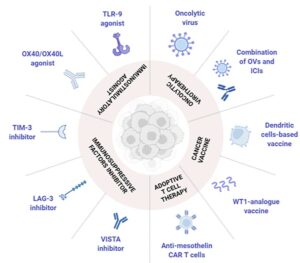Introduction:
Secondary education marks a critical phase in an individual’s academic journey, shaping both intellectual growth and personal development. This comprehensive guide explores the significance of secondary education, its key components, challenges, and the transformative impact it has on students as they prepare for the next stages of their lives.
Defining Secondary Education: The Bridge to Higher Learning:
Define secondary education as the educational stage between primary schooling and higher education, typically encompassing grades 9 through 12. Discuss its role as a foundational period that prepares students for advanced academic pursuits or entry into the workforce.
Key Components of Secondary Education: Building a Comprehensive Foundation:
Explore the essential components of secondary education, including a diverse curriculum, extracurricular activities, career exploration, and personal development. Discuss how these elements contribute to a well-rounded educational experience.
Curriculum and Subject Specialization: Nurturing Academic Interests:
Highlight the breadth of the secondary education curriculum, covering core subjects such as mathematics, science, literature, and social studies. Discuss the opportunities for subject specialization, allowing students to delve deeper into areas of academic interest.
Extracurricular Activities: Beyond the Classroom:
Emphasize the importance of extracurricular activities in secondary education, including sports, arts, clubs, and community service. Discuss how these activities contribute to personal growth, leadership development, and the cultivation of a well-rounded skill set.
Career Exploration and Guidance: Shaping Future Paths:
Explore the role of secondary education in providing career guidance and exploration opportunities. Discuss programs, workshops, and resources that assist students in making informed decisions about their future academic and professional paths.
Standardized Testing and College Readiness: Preparing for the Next Level:
Discuss the role of standardized testing in secondary education and its connection to college readiness. Explore strategies for preparing students for college entrance exams and navigating the college application process.
Personal Development and Life Skills: Beyond Academic Achievements:
Highlight the importance of personal development and life skills in secondary education. Discuss the incorporation of skills such as critical thinking, communication, and problem-solving into the curriculum to prepare students for the challenges of adulthood.
Teacher-Student Relationships: Fostering Mentorship and Guidance:
Examine the significance of positive teacher-student relationships in secondary education. Discuss how mentorship and guidance from educators contribute to students’ academic success, emotional well-being, and personal development.
Challenges in Secondary Education: Addressing Hurdles to Success:
Acknowledge common challenges in secondary education, including issues such as student stress, academic pressure, and disparities in educational resources. Discuss strategies and initiatives aimed at overcoming these challenges to create a more equitable and supportive learning environment.
Technological Integration: Enhancing Learning Experiences:
Explore the integration of technology in secondary education, including online learning platforms, digital resources, and educational apps. Discuss how technology enhances teaching methods, student engagement, and prepares students for the digital age.
Transition to Higher Education or Career: Preparing for the Future:
Discuss the various pathways available to students after completing secondary education, including entry into higher education institutions or transitioning directly into the workforce. Highlight the importance of informed decision-making and career planning.
Conclusion: Empowering Futures Through Secondary Education:
Conclude by emphasizing the transformative impact of secondary education in shaping the future of students. Encourage a holistic approach that values academic achievements, personal development, and the acquisition of skills necessary for success in higher education and beyond. Acknowledge the role of secondary education in empowering individuals to navigate the complexities of adulthood and contribute meaningfully to society






